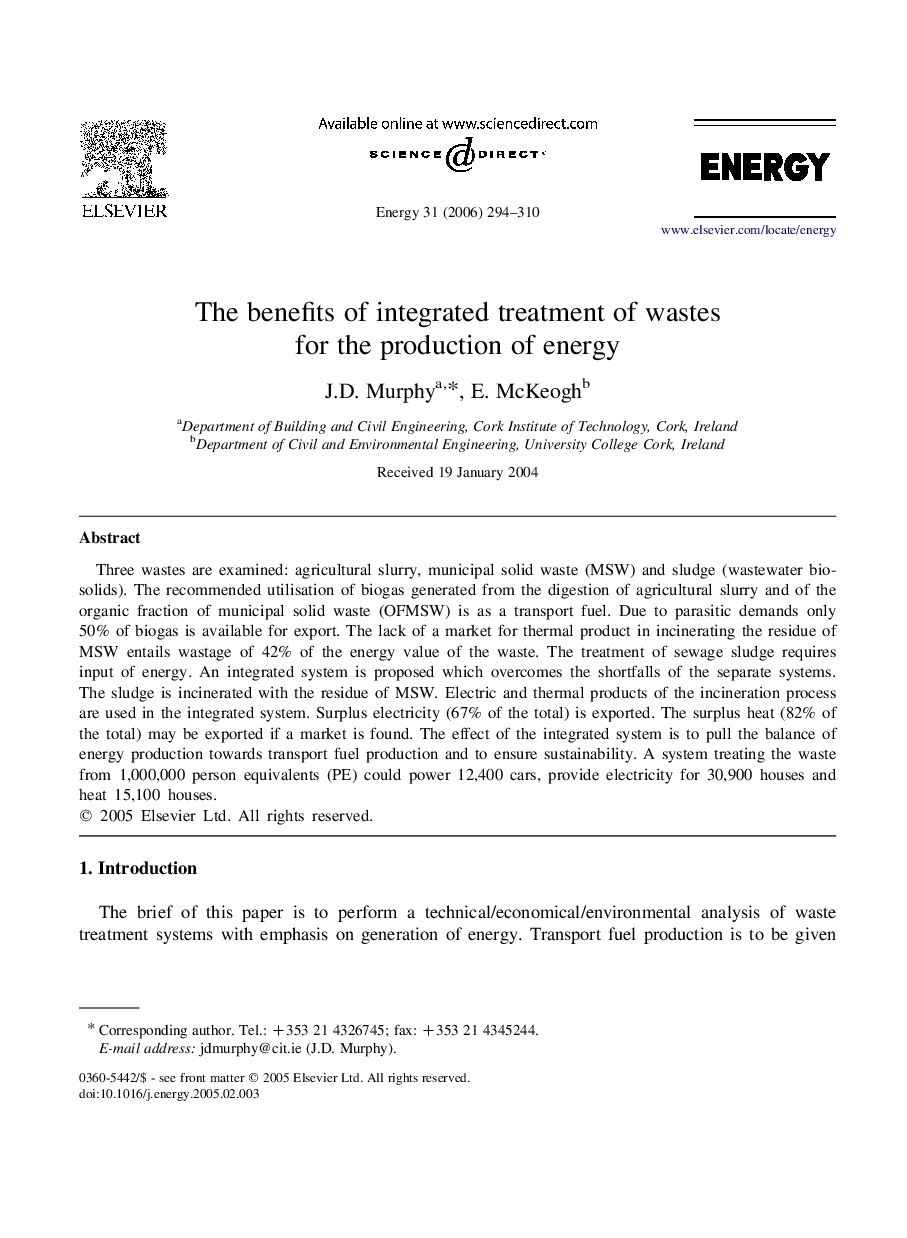| Article ID | Journal | Published Year | Pages | File Type |
|---|---|---|---|---|
| 1736571 | Energy | 2006 | 17 Pages |
Three wastes are examined: agricultural slurry, municipal solid waste (MSW) and sludge (wastewater bio-solids). The recommended utilisation of biogas generated from the digestion of agricultural slurry and of the organic fraction of municipal solid waste (OFMSW) is as a transport fuel. Due to parasitic demands only 50% of biogas is available for export. The lack of a market for thermal product in incinerating the residue of MSW entails wastage of 42% of the energy value of the waste. The treatment of sewage sludge requires input of energy. An integrated system is proposed which overcomes the shortfalls of the separate systems. The sludge is incinerated with the residue of MSW. Electric and thermal products of the incineration process are used in the integrated system. Surplus electricity (67% of the total) is exported. The surplus heat (82% of the total) may be exported if a market is found. The effect of the integrated system is to pull the balance of energy production towards transport fuel production and to ensure sustainability. A system treating the waste from 1,000,000 person equivalents (PE) could power 12,400 cars, provide electricity for 30,900 houses and heat 15,100 houses.
